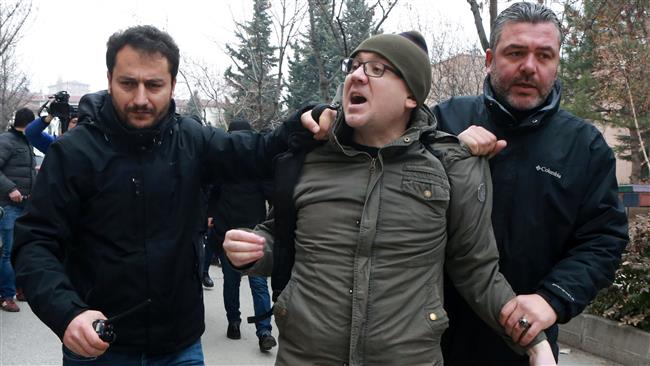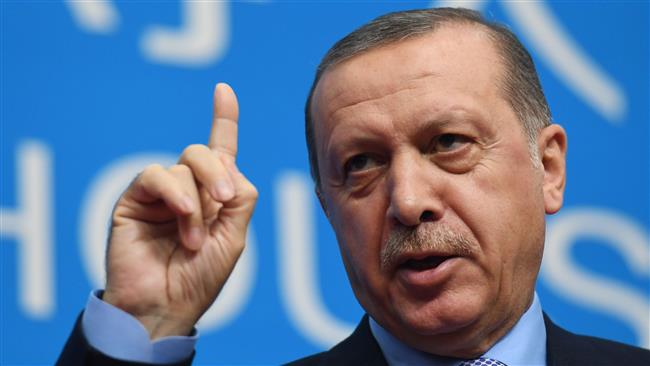Turkey arrests 600 over alleged PKK links ahead of referendum
Turkey has arrested more than 600 people for alleged links to Kurdish militants ahead of a referendum on constitutional amendments that would give the president sweeping executive powers.
The state-run Anadolu agency reported that counter-terror police detained 86 people suspected of being connected to the outlawed Kurdistan Workers’ Party (PKK) militant group in dawn raids on Tuesday in several areas across the country, in addition to 544 detained a day earlier.
The pro-Kurdish Peoples’ Democratic Party (HDP) said in a statement issued prior to the arrests that Turkish authorities arrested more than 300 of its members and executives on Monday, bringing those held this year to about 1,200.
A dozen of its lawmakers and scores of Kurdish mayors from a sister party have been jailed pending trial, according to the statement.
The party’s executive committee said in the statement that “the basic goal of these operations... is to hold the referendum without the HDP.”
“We will never bow down faced with this persecution and pressure,” the party said, adding “What they are trying to prevent with the detentions and arrests is a ‘No’ (vote in the referendum).”
Turkey will hold a referendum in mid-April on replacing the current parliamentary system with the executive presidency long sought by President Recep Tayyip Erdogan.
The vote will be held under a state of emergency following last July’s botched coup against the Erdogan government.

Tens of thousands of people have been arrested in Turkey on suspicions of having links to US-based opposition cleric Fethullah Gulen, blamed by Ankara for having been behind the coup attempt.
Turkey accuses the HDP of being the political arm of the outlawed Kurdistan Workers’ Party (PKK) militant group.
A shaky ceasefire between the PKK, which has been calling for an autonomous Kurdish region since 1984, and the Turkish government collapsed in July 2015. Attacks on Turkish security forces have soared ever since.
Over the past few months, Turkish ground and air forces have been carrying out operations against the PKK positions in the country’s troubled southeastern border region as well as Iraq’s semi-autonomous Kurdistan region and northern Syria.
Dozens detained, several wounded in Israeli raids in West Bank
‘Ethnic cleansing’: Hamas blasts Israeli attacks on Gaza hospital amid intl. silence
Saudi delegation meets HTS leader at presidential palace in Damascus
Relentless Israeli ceasefire violations justify need for self-defense: Lebanese MP
Tel Aviv tells Damascus Israeli forces will remain in occupied territory: Report
Dec. 22: ‘Axis of Resistance’ operations against Israeli occupation
‘Abhorrent’: Oxfam says only 12 trucks delivered aid in North Gaza since Oct.
VIDEO | Leader receives religious eulogists on Hazrat Fatima birth anniv.















 This makes it easy to access the Press TV website
This makes it easy to access the Press TV website